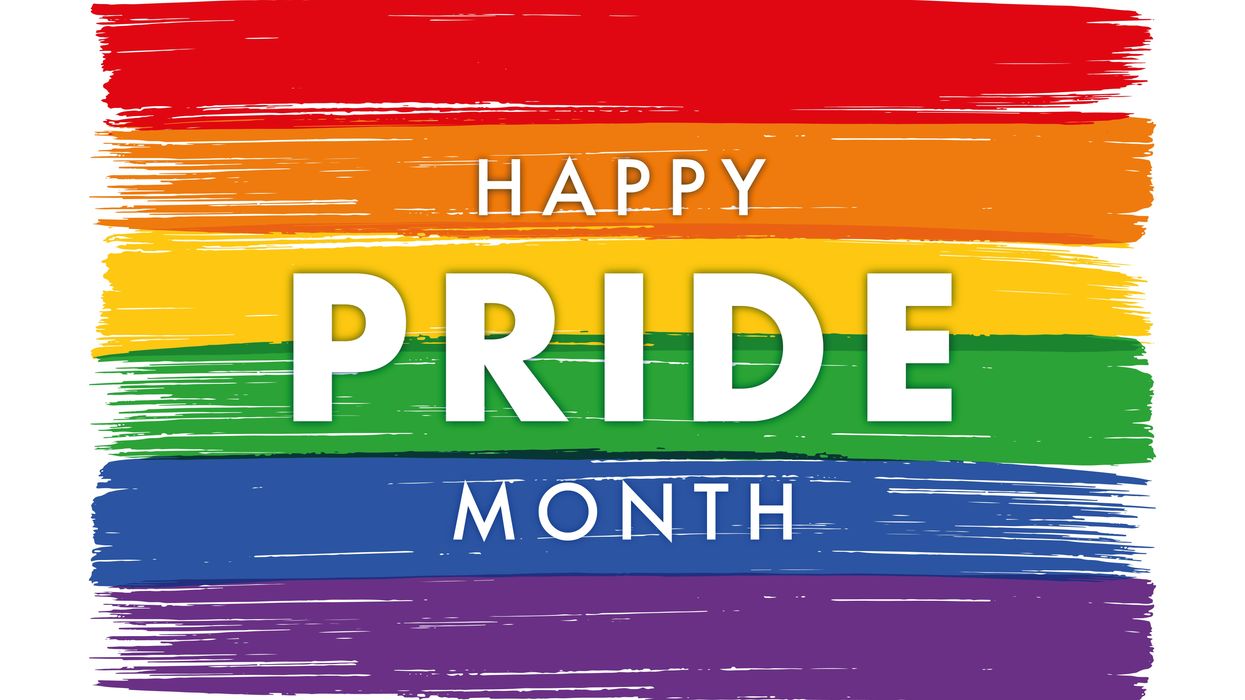Johnson is a United Methodist pastor, the author of "Holding Up Your Corner: Talking About Race in Your Community" and program director for the Bridge Alliance, which houses The Fulcrum.
As June ushers in Pride Month, cities worldwide erupt in a rainbow of celebrations, rallies and moments of reflection. While there's a palpable mix of joy and determination as communities come together, for many within and allied to the LGBTQ+ community, this year's observance is bittersweet. Even as we commemorate the hard-fought victories of the past, the future of those very rights feels precarious. Legal uncertainty casts a long shadow over the parades and parties.
At the heart of this unease lies the fragile state of marriage equality. It was only a decade ago that the Supreme Court's landmark Obergefell v. Hodges ruling struck down bans on same-sex marriage, cementing a fundamental right. But in the aftermath of the court's 2022 Dobbs decision overturning Roe v. Wade, the threat to Obergefell is impossible to ignore. Justice Clarence Thomas's concurring opinion practically dared someone to challenge the ruling, and conservative groups are already mobilizing to do just that. The danger is no longer theoretical — it's a genuine possibility that could upend the lives of millions.
This threat isn't merely hypothetical. Legislation like the Respect for Marriage Act, which would enshrine federal protections for same-sex marriage, remains stalled. Without it, the rights of millions of LGBTQ+ Americans hang precariously in the balance, vulnerable to a court that has already demonstrated its willingness to dismantle established precedents. Each day without action leaves families in legal limbo, their futures hanging by a thread.
However, the struggle for LGBTQ+ equality extends far beyond the courtroom. The world of religion remains a complex, often fraught arena. The recent schism within the United Methodist Church over LGBTQ+ inclusion is a stark reminder that houses of worship can be both sources of comfort and sites of pain for queer individuals. As some Methodists welcome all into their congregations, others have splintered off, digging in their heels. Such practices aren't unique to Methodism — from synagogues to mosques, religious communities grapple with reconciling doctrine and compassion, with wildly varying results.
From the Catholic Church's internal struggle over blessing same-sex unions to Orthodox Judaism's profoundly entrenched opposition to queer rights, religious communities wrestle with their own identities and values. For LGBTQ+ people of faith, these debates cut to the quick. They're a constant reminder that even in a society that has made enormous strides toward acceptance, some still seek to deny their existence. The pain of that rejection runs deep, a spiritual dislocation that can shake one's sense of self.
Yet, even in the face of this uncertainty and division, Pride endures. It endures because it's more than just a celebration — it's a declaration — declaration that LGBTQ+ lives are valid, that their love is equal, and that their identities will not be erased or marginalized. It's a defiant affirmation of selfhood in the face of those who would seek to deny it. With every step and every chant, we proclaim that our existence is not a sin but a strength.
This Pride Month, the faithful will march, dance and remember alongside one another. We'll honor the pioneers who fought and bled for the rights we enjoy today. We'll stand in solidarity with those still facing discrimination and danger, both at home and abroad. And we'll look to the future, undaunted by the challenges ahead. Drawing on the deep wellspring of resilience that has always defined our community, we'll find the determination to thrive in the face of adversity.
Pride commemorates the past and promises the future. It's a testament to the indomitable spirit of a community that has always known its existence as an act of resistance. In the face of those who would seek to roll back our hard-won gains, we'll be the stone in the shoe, the voices that refuse to be silenced.
This June, you are encouraged to raise colorful flags, beat your drum loudly, proudly take it to the streets, and proclaim Pride to the world. In doing so, we're not just celebrating who we are — we're shaping who we all yet may be. And that's a victory no court ruling or religious doctrine can ever take away. In the end, true power doesn't lie in the judgments of courts or the teachings of churches but in the unquenchable spirit of love and acceptance. That's the true meaning of Pride, and it's what will carry us forward, no matter what the future may hold.




















Trump & Hegseth gave Mark Kelly a huge 2028 gift